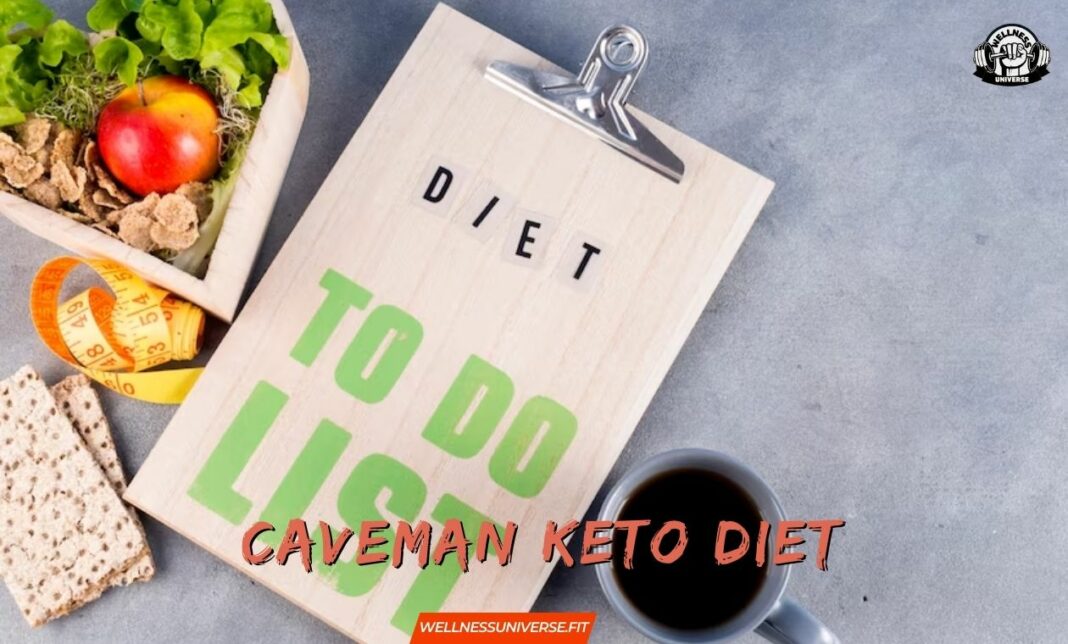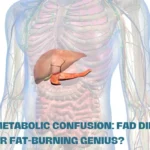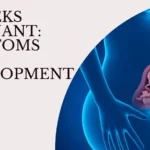The Caveman Keto diet, also known as the Paleo Keto diet, is a dietary approach that combines the principles of the ketogenic diet and the paleo diet. It focuses on consuming natural, whole foods while limiting carbohydrate intake to induce a state of ketosis in the body. This diet draws inspiration from the eating habits of our ancient ancestors, emphasizing nutrient-dense, unprocessed foods that our bodies are biologically adapted to consume.
The Caveman Keto diet combines the principles of the ketogenic diet and the paleo diet to create a unique approach to eating. Like the ketogenic diet, it promotes a low-carbohydrate intake, aiming to switch the body’s primary fuel source from carbohydrates to fat. By reducing carbohydrate intake, the body enters a metabolic state called ketosis, where it begins to burn stored fat for energy.
At the same time, the Caveman Keto diet follows the paleo diet’s philosophy of consuming natural, unprocessed foods. It emphasizes the consumption of lean meats, fish, eggs, vegetables, fruits, nuts, and seeds while excluding processed foods, grains, legumes, dairy products, and added sugars. The focus is on foods that our ancestors would have hunted, gathered, or foraged, aiming to provide the body with nutrient-dense, whole foods.
Ketosis is a fundamental aspect of the Caveman Keto diet. It occurs when the body is in a state of low carbohydrate availability and starts to produce ketones as an alternative fuel source. Ketones are produced by the liver from stored fat, and they provide energy to the brain and other tissues in the absence of glucose.
Understanding the role of ketosis is crucial because it is the key mechanism through which the Caveman Keto diet promotes weight loss and various health benefits. By entering ketosis, the body becomes more efficient at burning stored fat, leading to a reduction in body weight and body fat percentage. Additionally, ketosis has been associated with improved mental clarity, increased energy levels, and better blood sugar control.
By following the Caveman Keto diet and understanding the importance of ketosis, individuals can harness the power of this metabolic state to achieve their weight loss and health goals. However, it is essential to approach the diet with proper knowledge and guidance to ensure a balanced and sustainable approach to eating.
How the Caveman Keto Diet Works

The Caveman Keto diet operates on the fundamental principles of the ketogenic diet. The ketogenic diet is a low-carbohydrate, high-fat eating plan designed to shift the body’s metabolism into a state of ketosis. When carbohydrates are limited, the body’s primary source of energy, glucose, becomes scarce. In response, the body begins to break down stored fat into molecules called ketones, which are then used as an alternative fuel source. This metabolic state is known as ketosis.
The Caveman Keto diet also draws inspiration from the paleo diet, which promotes eating patterns similar to those of our hunter-gatherer ancestors. The paleo diet emphasizes the consumption of whole, unprocessed foods such as lean meats, fish, eggs, vegetables, fruits, nuts, and seeds while excluding processed foods, grains, legumes, dairy products, and added sugars. By focusing on nutrient-dense foods that our bodies are biologically adapted to process, the paleo diet aims to support optimal health and well-being.
The Caveman Keto diet combines the low-carbohydrate aspect of the ketogenic diet with the emphasis on whole, unprocessed foods from the paleo diet. By significantly reducing carbohydrate intake, the diet aims to deplete the body’s glycogen stores, prompting it to switch to burning fat for fuel. This is achieved by consuming moderate amounts of protein, sufficient healthy fats, and a limited amount of carbohydrates primarily from non-starchy vegetables and some low-sugar fruits.
In the Caveman Keto diet, fats make up a substantial portion of the macronutrient intake. This high-fat content provides satiety and helps maintain energy levels. Sources of healthy fats include avocados, coconut oil, olive oil, nuts, and seeds. Protein intake is moderate and typically comes from lean meats, poultry, fish, and eggs.
By combining the principles of the ketogenic diet and the paleo diet, the Caveman Keto diet aims to optimize health and promote weight loss by encouraging the body to rely on fat as its primary fuel source. It provides a balanced approach to eating, emphasizing whole, unprocessed foods while avoiding processed and refined carbohydrates, which can lead to blood sugar fluctuations and inflammation.
Foods Allowed on the Caveman Keto Diet
The Caveman Keto diet focuses on whole, nutrient-dense foods that support ketosis and align with the principles of the paleo diet. Here are some foods that are encouraged on the Caveman Keto diet:
- Animal proteins: Including beef, poultry, pork, lamb, and game meats. These provide essential amino acids for muscle repair and growth.
- Fatty fish: Such as salmon, mackerel, and sardines, are rich in omega-3 fatty acids that promote heart health and reduce inflammation.
- Eggs: A versatile and nutrient-dense source of protein and healthy fats.
- Healthy fats: Avocado, coconut oil, olive oil, butter, ghee, and animal fats are all encouraged on the Caveman Keto diet. These fats provide energy, support hormone production, and aid in nutrient absorption.
- Non-starchy vegetables: Leafy greens, broccoli, cauliflower, zucchini, bell peppers, mushrooms, and other low-carb vegetables are excellent sources of fiber, vitamins, and minerals.
- Nuts and seeds: Almonds, walnuts, chia seeds, flaxseeds, and pumpkin seeds are nutrient-dense and provide healthy fats and fiber.
- Low-sugar fruits: Berries, such as strawberries, blueberries, and raspberries, are lower in sugar compared to other fruits and can be enjoyed in moderation.
The Caveman Keto diet places a strong emphasis on consuming animal proteins, healthy fats, and non-starchy vegetables. Animal proteins provide essential amino acids and important nutrients like iron and vitamin B12. Healthy fats are a primary source of energy in this diet, aiding in satiety and supporting ketosis. Non-starchy vegetables are rich in fiber, vitamins, and minerals while being lower in carbohydrates, making them a valuable addition to the Caveman Keto diet.
The Caveman Keto diet avoids certain foods that are commonly consumed in modern diets. This includes grains, legumes, and processed sugars. Here’s why:
- Grains: Grains, including wheat, barley, rice, and corn, are high in carbohydrates, particularly refined carbohydrates. They can cause spikes in blood sugar levels and may contribute to inflammation and insulin resistance. By avoiding grains, the Caveman Keto diet helps stabilize blood sugar and promote a state of ketosis.
- Legumes: Legumes such as beans, lentils, and chickpeas are also high in carbohydrates and can impact blood sugar levels. They contain anti-nutrients such as phytates and lectins, which can interfere with nutrient absorption. By excluding legumes, the diet aims to minimize potential digestive issues and optimize nutrient intake.
- Processed sugars: Processed sugars, including table sugar, high-fructose corn syrup, and artificial sweeteners, are high in carbohydrates and offer little to no nutritional value. They can lead to blood sugar spikes, and insulin resistance, and contribute to cravings for more sugary foods. The Caveman Keto diet promotes natural sweeteners in moderation, such as stevia or small amounts of honey or maple syrup.
By avoiding these foods, the Caveman Keto diet aims to reduce carbohydrate intake, maintain stable blood sugar levels, and promote the body’s utilization of stored fat for energy. This approach aligns with the principles of the ketogenic and paleo diets, emphasizing whole, unprocessed foods that support overall health and well-being.
Effectiveness of the Caveman Keto Diet for Weight Loss
The Caveman Keto diet’s low-carb, high-fat nature can be highly effective for weight loss. By reducing carbohydrate intake and increasing healthy fat consumption, the body enters a metabolic state called ketosis. In ketosis, the body shifts from using carbohydrates as its primary fuel source to relying on stored fat for energy. This metabolic adaptation can lead to significant weight loss for several reasons:
- Reduced insulin levels: By limiting carbohydrate intake, the Caveman Keto diet helps stabilize blood sugar levels and reduces the secretion of insulin. Lower insulin levels facilitate fat burning and prevent the storage of excess fat.
- Increased fat oxidation: The higher fat intake on the Caveman Keto diet encourages the body to become efficient at burning fat for fuel. As a result, stored body fat is broken down and utilized as an energy source, leading to weight loss.
- Enhanced satiety: Healthy fats are more satiating compared to carbohydrates, meaning they help you feel fuller for longer. This can lead to a reduced caloric intake overall, making it easier to create a calorie deficit and promote weight loss.
Ketosis is a metabolic state where the body produces ketones as an alternative energy source when carbohydrate intake is limited. Ketones are produced by the liver from fatty acids, including stored body fat. This shift to using fat for fuel is beneficial for weight loss because:
- Mobilization of stored fat: When carbohydrate intake is low, insulin levels decrease, allowing stored fat to be released and used for energy. This process helps reduce body fat stores, leading to weight loss.
- Increased metabolic flexibility: Being in a state of ketosis enhances the body’s ability to switch between burning carbohydrates and fat for fuel. This metabolic flexibility can optimize fat burning and contribute to weight loss.
- Appetite suppression: Ketosis has been associated with reduced hunger and improved appetite control. This can make it easier to adhere to a calorie-restricted diet, further supporting weight loss efforts.
Multiple studies and success stories have highlighted the effectiveness of the Caveman Keto diet for weight loss. While individual results may vary, many people have experienced significant weight loss and improvements in body composition when following this diet. Here are a few examples:
- A study published in the Journal of Clinical Endocrinology and Metabolism found that a low-carbohydrate ketogenic diet resulted in greater weight loss and fat loss compared to a low-fat diet in obese individuals.
- Many individuals have reported successful weight loss on the Caveman Keto diet through personal testimonials and online communities. These success stories often highlight not only weight loss but also improvements in overall health markers such as blood sugar levels and cholesterol profiles.
It’s important to note that the Caveman Keto diet’s effectiveness for weight loss may depend on various factors, including individual metabolism, adherence to the diet, and overall calorie intake. Consulting with a healthcare professional or registered dietitian before starting any new diet is recommended, especially if you have specific health conditions or concerns.
Benefits of Following the Caveman Keto Diet
While weight loss is often a primary goal for individuals following the Caveman Keto diet, there are several additional benefits associated with this way of eating. These benefits extend beyond mere weight management and can contribute to overall health and well-being. Some of the potential benefits include:
- Improved blood sugar control: The Caveman Keto diet focuses on reducing carbohydrate intake, which can help stabilize blood sugar levels. By minimizing high-glycemic foods and sugary snacks, this diet can support better blood sugar control and reduce the risk of insulin resistance, metabolic syndrome, and type 2 diabetes.
- Increased energy levels: Many individuals report experiencing increased energy levels and improved mental clarity when following the Caveman Keto diet. This can be attributed to the stable blood sugar levels and the utilization of ketones as a consistent fuel source, providing a steady supply of energy throughout the day.
- Reduced inflammation: The Caveman Keto diet emphasizes whole, unprocessed foods while avoiding inflammatory processed foods. This dietary approach can help reduce inflammation in the body, which is associated with various chronic diseases such as heart disease, arthritis, and certain types of cancer.
- Appetite regulation: The Caveman Keto diet, rich in protein, healthy fats, and fiber from vegetables, can help regulate appetite and promote feelings of fullness. This can lead to a reduced calorie intake, making it easier to maintain a healthy weight.
- Enhanced cardiovascular health: By reducing carbohydrate consumption and focusing on healthy fats, the Caveman Keto diet can have positive effects on cardiovascular health. It can help lower triglyceride levels, increase HDL (good) cholesterol, and reduce LDL (bad) cholesterol, promoting heart health.
- Improved digestive health: The emphasis on whole foods and the avoidance of processed grains and sugars can benefit digestive health. The Caveman Keto diet encourages the consumption of fiber-rich vegetables and healthy fats, which can support a healthy gut microbiome and regular bowel movements.
The Caveman Keto diet offers specific advantages that can positively impact health beyond weight loss. By focusing on low-carb, high-fat, and whole-food choices, this dietary approach can provide the following benefits:
- Improved blood sugar control: By reducing the consumption of refined carbohydrates and sugars, the Caveman Keto diet can help regulate blood sugar levels. This is especially beneficial for individuals with insulin resistance or diabetes, as it promotes better glycemic control and reduces the risk of blood sugar spikes and crashes.
- Increased energy levels: The Caveman Keto diet relies on healthy fats as a primary source of energy. These fats are efficiently converted into ketones, which can provide a consistent and sustainable energy supply for the body and brain. Many individuals report improved energy levels, mental clarity, and focus while following this diet.
- Reduced inflammation: The Caveman Keto diet prioritizes whole, unprocessed foods while avoiding inflammatory ingredients like refined sugars, grains, and vegetable oils. By reducing the intake of pro-inflammatory foods, this diet can help alleviate chronic inflammation in the body, which is associated with various health conditions, including cardiovascular disease, autoimmune disorders, and obesity.
- Enhanced weight loss: While weight loss is often a primary goal, the Caveman Keto diet’s low-carb and high-fat approach can facilitate effective and sustainable weight loss. By reducing carbohydrate intake, the body is encouraged to burn stored fat for energy, leading to weight loss and improvements in body composition.
- Improved satiety and appetite control: The Caveman Keto diet incorporates ample amounts of protein and healthy fats, both of which are highly satiating. These macronutrients help promote feelings of fullness and can prevent overeating or excessive snacking, supporting weight management goals.
- Enhanced cardiovascular health: The Caveman Keto diet’s focus on healthy fats, such as avocados, nuts, seeds, and olive oil, can positively impact cardiovascular health. By reducing the consumption of processed and unhealthy fats, this diet can help lower LDL cholesterol levels, triglycerides, and blood pressure, while increasing HDL cholesterol levels, which are associated with a lower risk of heart disease.
In addition to the specific benefits mentioned above, the Caveman Keto diet can contribute to overall health and well-being in the following ways:
- Nutrient-dense foods: The emphasis on whole, unprocessed foods provides a wide range of essential nutrients, vitamins, minerals, and antioxidants necessary for optimal health. By consuming nutrient-dense foods like leafy greens, lean proteins, healthy fats, and low-carb vegetables, individuals can support their overall well-being.
- Balanced macronutrient intake: The Caveman Keto diet promotes a balanced intake of macronutrients, including carbohydrates, fats, and proteins. This balance can help provide sustained energy, support muscle growth and repair, and ensure the proper functioning of bodily systems.
- Long-term sustainability: Unlike many fad diets, the Caveman Keto diet offers a sustainable approach to healthy eating. By focusing on whole, real foods and avoiding processed options, individuals can adopt this dietary pattern for the long term, supporting their health and well-being in the years to come.
- Potential for disease prevention: The Caveman Keto diet’s emphasis on whole, unprocessed foods and the reduction of inflammatory ingredients may contribute to a lower risk of chronic diseases such as heart disease, type 2 diabetes, and certain types of cancer.
- Psychological well-being: The Caveman Keto diet encourages the consumption of nutritious, satisfying meals that can positively impact mood and overall psychological well-being. Stable blood sugar levels and a balanced intake of essential nutrients can support mental clarity and emotional balance.
It’s important to note that individual experiences may vary, and it’s always recommended to consult with a healthcare professional or registered dietitian before making any significant changes to your diet, especially if you have specific health conditions or concerns.
Potential Risks and Drawbacks of the Caveman Keto Diet
While the Caveman Keto diet offers several benefits, it’s important to consider the potential challenges and risks that may arise when following this dietary approach. These include:
- Nutritional deficiencies: The Caveman Keto diet restricts certain food groups, such as grains, legumes, and dairy. This can lead to potential deficiencies in nutrients like fiber, calcium, vitamin D, and B vitamins. It’s crucial to ensure that alternative food sources or appropriate supplementation are incorporated to meet nutritional needs.
- Difficulty in adherence: The Caveman Keto diet requires strict adherence to low-carb, high-fat principles, which may be challenging for some individuals. It involves eliminating many common and convenient food options, which can make social situations and dining out more complicated.
- Initial adjustment period: When transitioning to the Caveman Keto diet, individuals may experience an adjustment period known as the “keto flu.” Symptoms may include fatigue, headaches, irritability, and brain fog. These symptoms are temporary and can be managed by staying hydrated, consuming enough electrolytes, and gradually reducing carbohydrate intake.
- Limited food choices: The elimination of certain food groups can limit the variety and make it more challenging to meet specific dietary preferences or restrictions. It’s important to plan meals carefully and explore alternative options to ensure a balanced and enjoyable eating experience.
- Potential increase in saturated fat intake: The Caveman Keto diet allows for the consumption of high-fat foods, including saturated fats. While research suggests that saturated fat may not be as detrimental to health as previously believed, it’s important to choose healthier sources of fats and balance the intake with unsaturated fats from sources like avocados, nuts, and seeds.
To address the potential risks and challenges associated with the Caveman Keto diet, it’s crucial to prioritize balanced nutrition and consider proper supplementation. Here are some recommendations:
- Focus on nutrient-dense foods: While following the Caveman Keto diet, prioritize nutrient-dense whole foods such as leafy greens, low-carb vegetables, lean proteins, healthy fats, and nuts and seeds. These foods can help provide a wide range of essential vitamins, minerals, and antioxidants.
- Consider appropriate supplementation: Depending on individual needs and dietary restrictions, consider supplementation to address potential nutrient deficiencies. Consult with a healthcare professional or registered dietitian to determine which supplements, if any, are necessary for your specific circumstances.
- Monitor electrolyte balance: Electrolyte imbalances can occur when following a ketogenic diet. Ensure an adequate intake of sodium, potassium, and magnesium through food sources or supplementation to maintain electrolyte balance and prevent related symptoms.
- Stay hydrated: Proper hydration is essential, especially when following a low-carb diet. Aim to drink enough water throughout the day to support overall health and well-being.
- Periodic reassessment: Regularly assess your overall health and well-being while following the Caveman Keto diet. Listen to your body and be open to adjusting your dietary approach as needed. Seek professional guidance if you encounter any persistent health issues or concerns.
To address potential nutrient deficiencies and ensure optimal health while following the Caveman Keto diet, consider the following suggestions:
- Consult with a healthcare professional or registered dietitian: Seeking guidance from a qualified professional can provide personalized advice based on your individual needs, health status, and goals. They can help assess your nutrient intake, recommend appropriate supplementation if necessary, and monitor your overall well-being.
- Focus on variety and inclusion: While the Caveman Keto diet restricts certain food groups, aims to include a variety of allowed foods to maximize nutrient intake and minimize the risk of deficiencies. Incorporate a wide range of low-carb vegetables, protein sources, and healthy fats to support balanced nutrition.
- Monitor biomarkers and health indicators: Regularly monitor your health biomarkers, such as blood lipid levels, blood sugar levels, and vitamin and mineral levels, through routine check-ups and blood tests. This can help identify any potential deficiencies or imbalances that may need to be addressed.
- Customize the diet to fit your needs: The Caveman Keto diet can be tailored to fit individual preferences and dietary restrictions. Modify the diet to include suitable alternatives while still adhering to the basic principles of low-carb, high-fat eating.
- Seek support and community: Joining online forums or support groups can provide a sense of community and offer helpful tips and insights from others who follow the Caveman Keto diet. Sharing experiences and learning from like-minded individuals can make the dietary journey more enjoyable and sustainable.
It’s important to remember that individual experiences may vary, and what works for one person may not work for another. Prioritize your overall health and well-being and make adjustments to your diet as needed.
In Crux
Congratulations! By exploring the principles of the Caveman Keto diet, you have taken an important step towards improving your health and overall well-being. The Caveman Keto lifestyle offers a unique approach to nutrition that combines the benefits of a low-carb, high-fat ketogenic diet with the principles of the paleo diet. By adopting this lifestyle, you have the opportunity to optimize your nutrition, support weight management, and enhance various aspects of your health.
While the Caveman Keto lifestyle holds great potential, it’s crucial to remember the importance of balance, flexibility, and individual customization. Every person’s body is unique, and what works for one individual may not work for another. It’s essential to listen to your body, adapt the dietary guidelines to fit your specific needs and find a sustainable approach that works for you.
Strive for balance in your food choices by including a variety of nutrient-dense, whole foods. Remember that the Caveman Keto lifestyle is not just about macronutrients but also about the quality of the foods you consume. Embrace flexibility in your approach by making modifications based on your preferences, dietary restrictions, and lifestyle requirements. It’s perfectly fine to customize the Caveman Keto diet to fit your specific needs and make it a sustainable long-term lifestyle choice.
Now is the time to take action and start implementing the principles of the Caveman Keto diet in your daily life. Here are a few steps to get started:
- Educate yourself: Continue to learn and deepen your understanding of the Caveman Keto lifestyle. Read books, articles, and scientific research to gain insights into the principles and benefits of this dietary approach.
- Plan your meals: Take the time to plan your meals. Consider incorporating a variety of animal proteins, healthy fats, and non-starchy vegetables into your daily meals. Experiment with new recipes and flavors to keep your meals exciting and enjoyable.
- Shop mindfully: Make a habit of shopping for whole, unprocessed foods. Fill your cart with fresh produce, quality meats, and nourishing fats. Avoid processed foods, grains, and sugars that can derail your progress.
- Seek support: Surround yourself with a supportive community of individuals who are also following the Caveman Keto lifestyle. Join online forums, social media groups, or local meetups to connect with like-minded people who can offer encouragement, share experiences, and provide valuable tips.
- Monitor your progress: Keep track of your progress along the way. Take note of how you feel, any improvements in your health markers, changes in energy levels, and weight management. This will help you stay motivated and make necessary adjustments to optimize your results.
Remember, adopting the Caveman Keto lifestyle is not just a short-term diet but a long-term commitment to your health and well-being. Be patient, stay consistent, and celebrate every small victory along the way.
Now, take the leap and embrace the Caveman Keto lifestyle. Your journey to improved health and vitality awaits you. Start implementing the principles today and enjoy the benefits of a nourishing, low-carb, high-fat way of life. Here’s to your health and happiness on your Caveman Keto journey!
Thank you for joining us on this fitness journey! We hope you found our Fueling Your Body with Caveman Keto Diet: The Ultimate Guide blog insightful and inspiring. Our aim is to provide you with valuable information, expert advice, and motivational content to support you in your wellness endeavors.
Related Post :-
- How To Do Wall Pushups
- Batman Workout
- CrossFit Unleashed
- Barbell Lunges
- Online Coaching
- Kettlebell Circuit
FAQs about Caveman Keto Diet
Can I follow the Caveman Keto diet if I have dietary restrictions or allergies?
Absolutely! The Caveman Keto diet can be adapted to accommodate various dietary restrictions and allergies. You can make substitutions and modifications to fit your specific needs while still adhering to the principles of the diet.
Will the Caveman Keto diet help me lose weight?
The Caveman Keto diet has been shown to be effective for weight loss due to its low-carb, high-fat nature. By entering a state of ketosis, your body burns stored fat for energy, leading to weight loss. However, individual results may vary.
Can I eat fruits and vegetables on the Caveman Keto diet?
While the Caveman Keto diet focuses primarily on animal proteins, healthy fats, and non-starchy vegetables, some fruits and vegetables can be consumed in moderation. Opt for low-carb options such as berries and leafy greens.
Is it necessary to count calories on the Caveman Keto diet?
The Caveman Keto diet emphasizes the quality of food rather than strict calorie counting. However, portion control and mindful eating are still important for weight management and overall health.
Can I have dairy products on the Caveman Keto diet?
Dairy products are generally limited on the Caveman Keto diet due to their lactose and carbohydrate content. However, some individuals choose to include small amounts of high-fat dairy products like full-fat cheese and heavy cream.
What are some common challenges when following the Caveman Keto diet?
Some common challenges include adapting to the low-carb lifestyle, dealing with cravings, and finding suitable alternatives for high-carb foods. It may take time for your body to adjust, but with planning and perseverance, these challenges can be overcome.
Should I exercise while following the Caveman Keto diet?
Exercise is beneficial for overall health and can be incorporated into your Caveman Keto lifestyle. Engaging in regular physical activity can support weight loss, improve cardiovascular health, and enhance muscle strength and tone.
How long should I follow the Caveman Keto diet?
The length of time you follow the Caveman Keto diet is a personal decision. Some people choose to follow it for a specific period, such as a few weeks or months, while others adopt it as a long-term lifestyle. It ultimately depends on your goals and how your body responds to the diet.
Is it possible to dine out or travel while on the Caveman Keto diet?
Yes, it is possible to dine out and travel while following the Caveman Keto diet. With some research and planning, you can find keto-friendly options at restaurants or pack your own meals and snacks for travel to ensure you stay on track with your dietary goals.

Meet Pradeep Singh, your go-to guide for all things fitness, health, and motivation. With over 7 years in the field, Pradeep brings a blend of expertise and real-world experience to his writing. From workout tips to healthy living insights, he simplifies complex topics, making fitness accessible for everyone. His authentic approach and genuine passion aim to inspire and support your wellness journey. Get ready to embark on a path to a healthier lifestyle with Pradeep as your trusted companion and motivator.



















